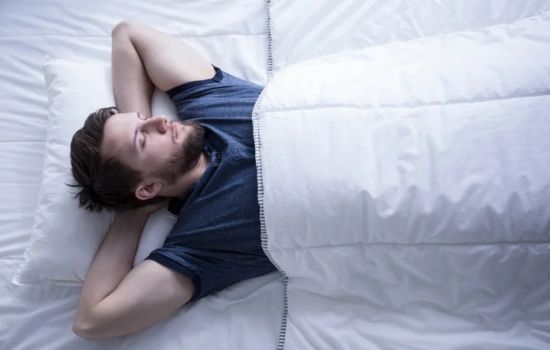Sleeping well is one of the fundamental pillars of health, but many people today struggle to get adequate rest.
Stress, excessive screen time, and hectic routines are often factors that directly affect how we sleep.
In this context, using a app to improve sleep quality can be an effective strategy to regain balance.
Tools such as Sleep Cycle, Calm and Headspace They have been designed to help users sleep better, whether by analyzing nighttime cycles, offering guided meditations, or encouraging healthy sleep habits.
See also
- Learn to Draw Easily with These Essential Apps
- No More Low Battery! The Best Apps for Android and iOS
- Learn to Drive from Your Mobile: The Best Apps
- From photo to result: how breed identifiers work
- Complete Guide to Pet Training
The importance of quality rest
Sleep isn't just a time to disconnect: it's an active process in which the body and mind regenerate. During the night, memories are consolidated, tissues are repaired, and hormone production is regulated. Poor sleep, on the other hand, can have immediate consequences such as lack of concentration, irritability, and fatigue, as well as long-term problems such as anxiety, hypertension, and decreased immune system.
For this reason, a app to improve sleep quality It is not simply a fad, but a tool that helps integrate technology for the benefit of personal well-being.
Sleep Cycle: The Smart Alarm Clock
Sleep Cycle It has gained popularity thanks to its ability to analyze sleep patterns. It uses the phone's sensors and microphone to detect movements and sounds, identifying what stage of sleep you're in.
Its main attraction is the smart alarm, which chooses to wake you up at the lightest moment within a scheduled time range, avoiding the tiredness that comes with a rude awakening.
Highlighted Features:
- Daily and weekly sleep quality records.
- Clear statistics to detect unhealthy habits.
- More natural and less stressful awakenings.
Sleep Cycle is ideal for those looking for concrete data and a detailed analysis of their rest.
Calm: The Power of Relaxation
Calm It has positioned itself as one of the best mental wellness and sleep apps. Unlike Sleep Cycle, Calm focuses on preparing the body and mind before sleep.
Within the application, resources such as:
- Guided meditations that reduce stress.
- Sleep Stories, stories narrated with relaxing voices that help you fall asleep.
- Music and ambient sounds specifically created to induce calm.
It's an especially useful tool for people who feel their insomnia stems from anxiety or overthinking. Calm acts as a nighttime refuge that facilitates the transition to deep rest.
Headspace: Mindfulness for Balanced Sleep
Headspace It's not just an app for sleeping better, but also works as a complete mindfulness guide. Its programs are designed to train the mind to manage stress and anxiety, two of the factors that most affect sleep quality.
Main features:
- Breathing exercises to release tension.
- Mindfulness routines that reduce negative thoughts.
- Short meditations that can be used at any time of day.
Compared to Calm, which offers a more narrative and musical approach, Headspace focuses on create sustainable habits that positively impact the daily and nightly routine.
Benefits of apps for better sleep
The use of applications of this type generates multiple advantages, including:
- Self-awareness: They allow you to know what factors influence your sleep.
- Healthier routines: They encourage regular schedules and nighttime discipline.
- Effective relaxation: reduce stress and anxiety accumulated during the day.
- Less abrupt awakenings: thanks to smart alarm technology.
- Immediate access: can be used at any time, without the need for expensive equipment.
Practical tips to complement the use of apps
Although the apps to improve sleep quality They are very useful, it is always advisable to accompany them with healthy habits:
- Establish a fixed schedule for sleeping and waking up.
- Avoid using screens at least 30 minutes before bedtime.
- Keep the bedroom dark, cool, and quiet.
- Reduce caffeine and alcohol consumption at night.
- Incorporate relaxation techniques, such as gentle stretching or deep breathing.
Glossary of technical terms related to sleep
To get the most out of these applications, it's a good idea to familiarize yourself with some key concepts:
- Circadian cycle: biological rhythm of approximately 24 hours that regulates sleep and wakefulness.
- REM (Rapid Eye Movement) sleep: phase of sleep characterized by rapid eye movements, where most dreams occur.
- Deep sleep: stage of rest in which the body performs most of its cellular repair.
- Mindfulness: a mindfulness practice that involves focusing on the present without judgment, useful for reducing anxiety.
- Melatonin: natural hormone that regulates sleep and wake cycles.
- Insomnia: persistent difficulty falling or staying asleep.
- Sleep hygiene: set of habits and environmental conditions that promote quality rest.
- Smart alarm clock: technology that seeks the lightest phase of sleep to wake you up without any abruptness.
- Guided meditation: a technique in which a voice or guide guides the process of relaxation and mindfulness.
- Sleep latency: time it takes for a person to fall asleep after going to bed.

Conclusion
Sleeping well is essential for health and emotional balance. apps to improve sleep quality They represent an accessible and effective opportunity to recover lost rest. Sleep Cycle It stands out for its detailed analysis of nocturnal cycles, Calm for its ability to induce relaxation and Headspace for teaching mindfulness and promoting sustainable habits.
The glossary of technical terms shows how these tools are supported by scientific concepts and proven practices. However, the most important thing remains consistency: combining technology with good daily habits.
Ultimately, thanks to these apps and a genuine commitment to well-being, anyone can transform their nights into a space for genuine recovery and wake up every day with more energy and vitality.









